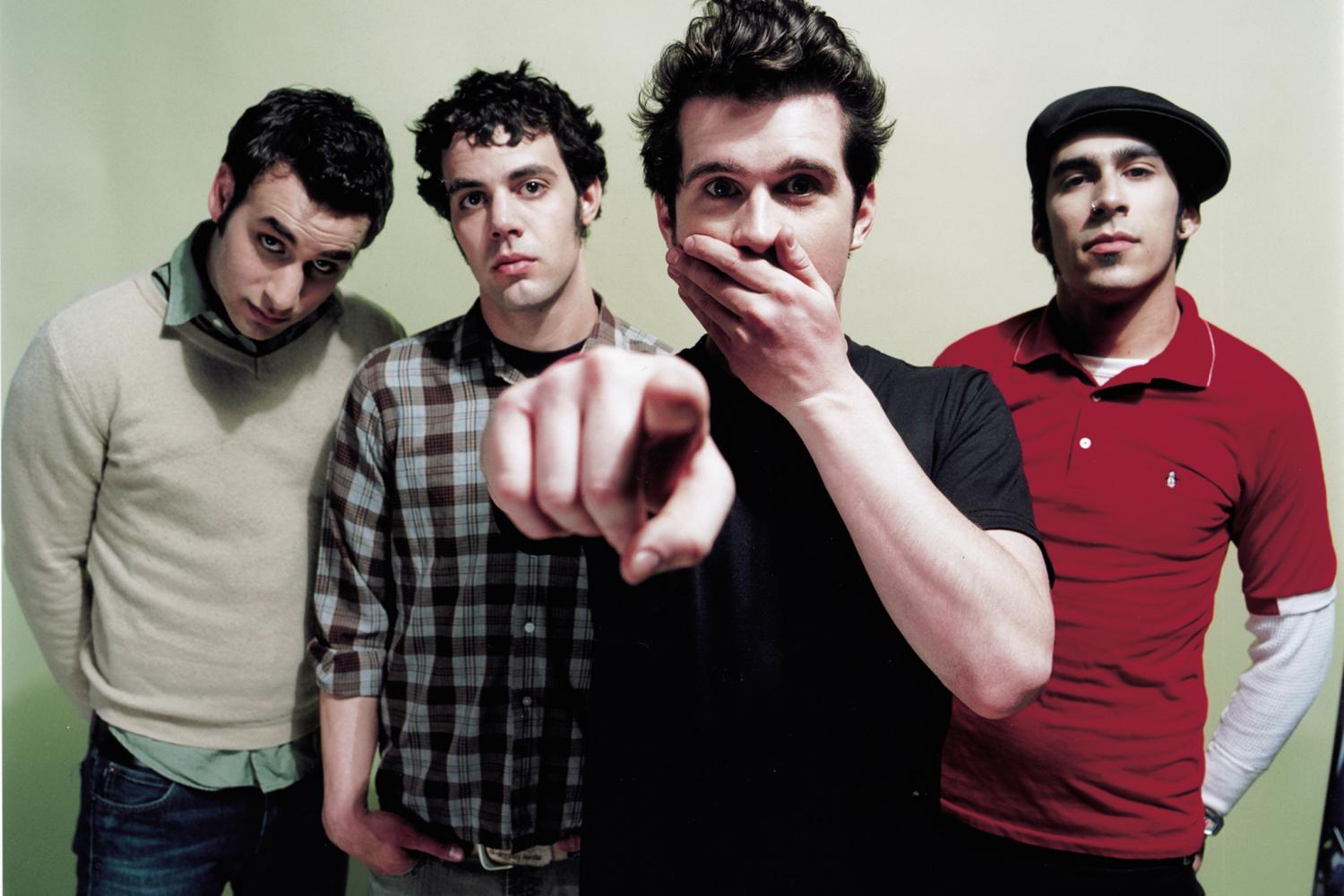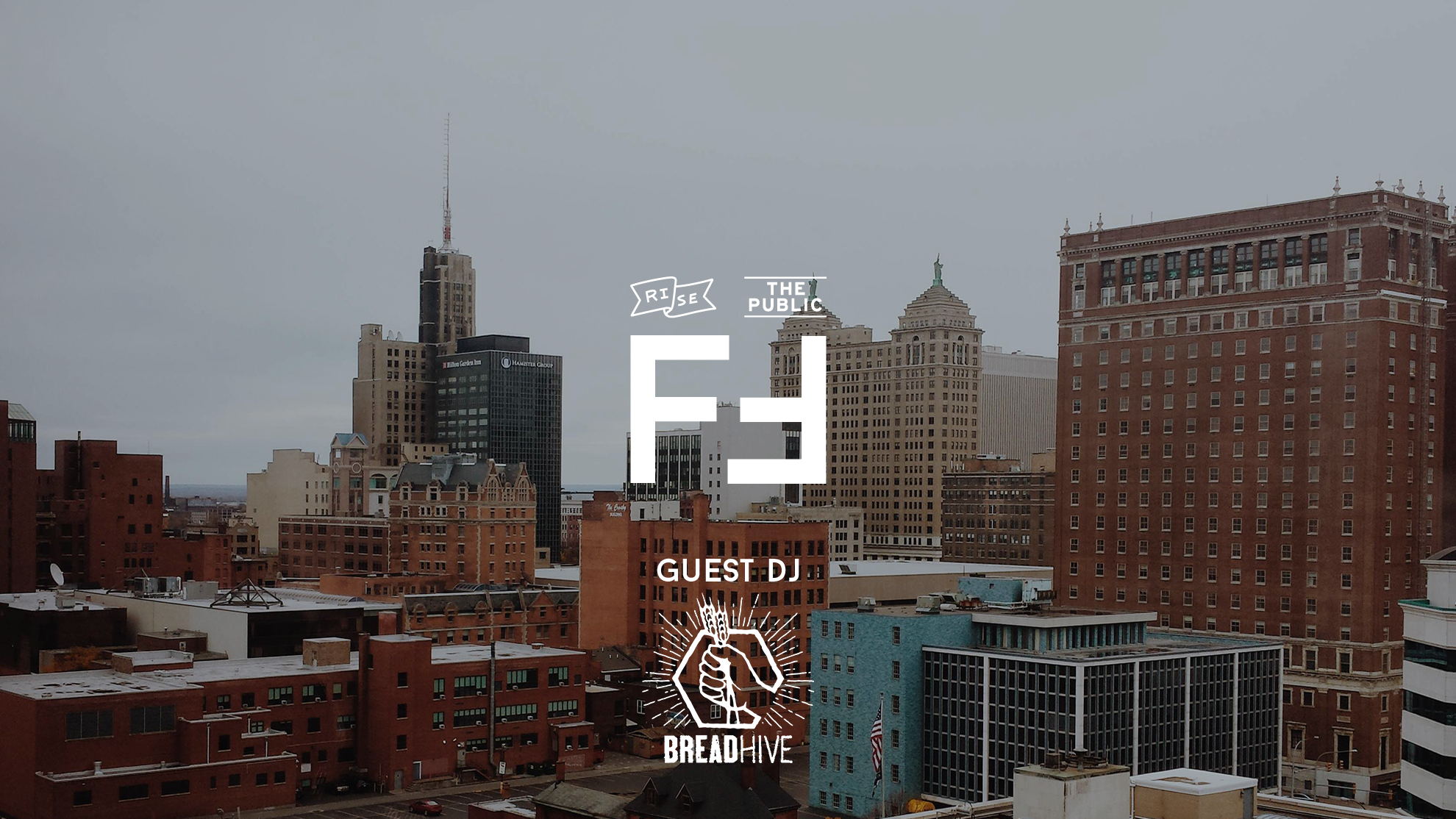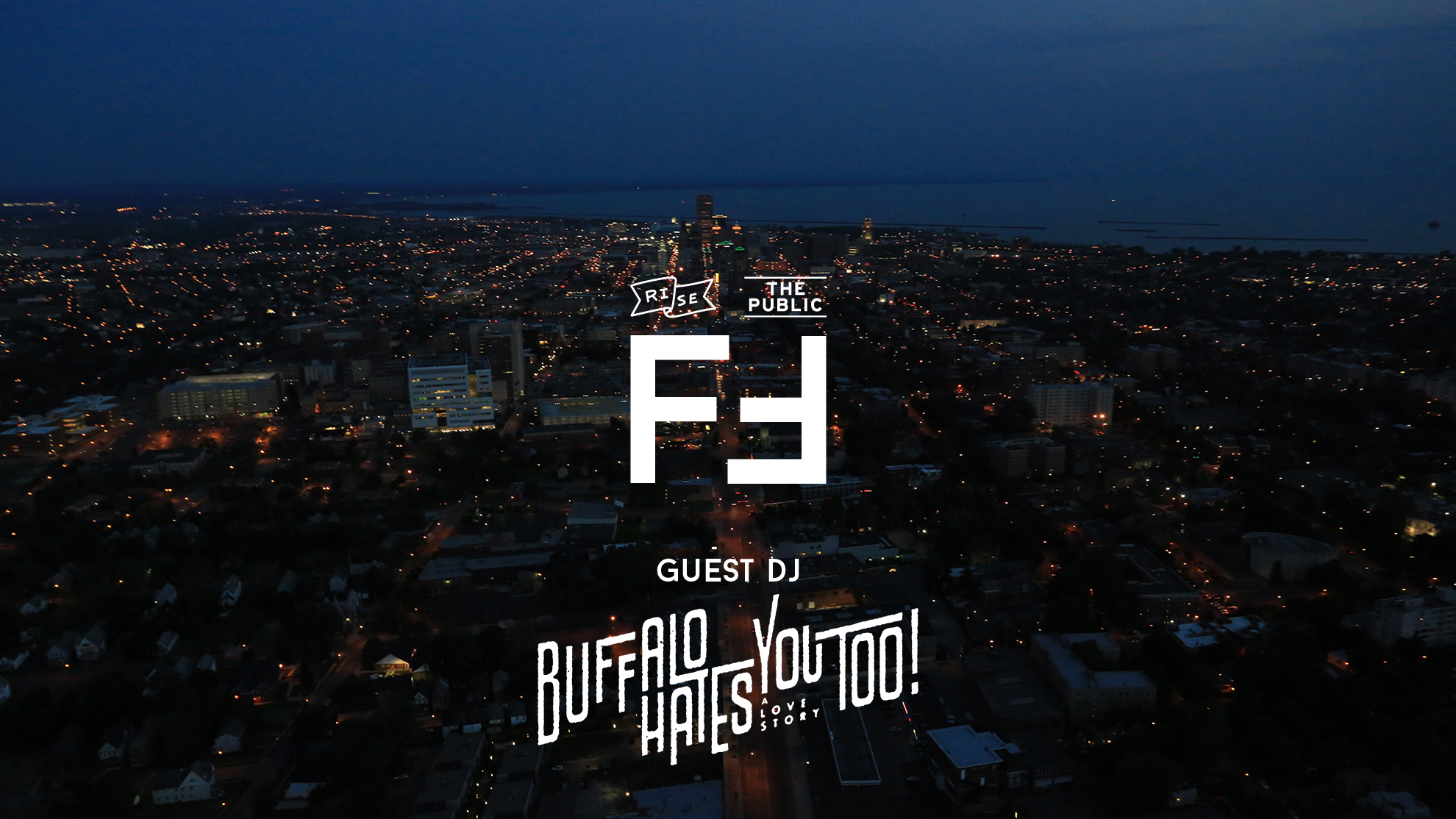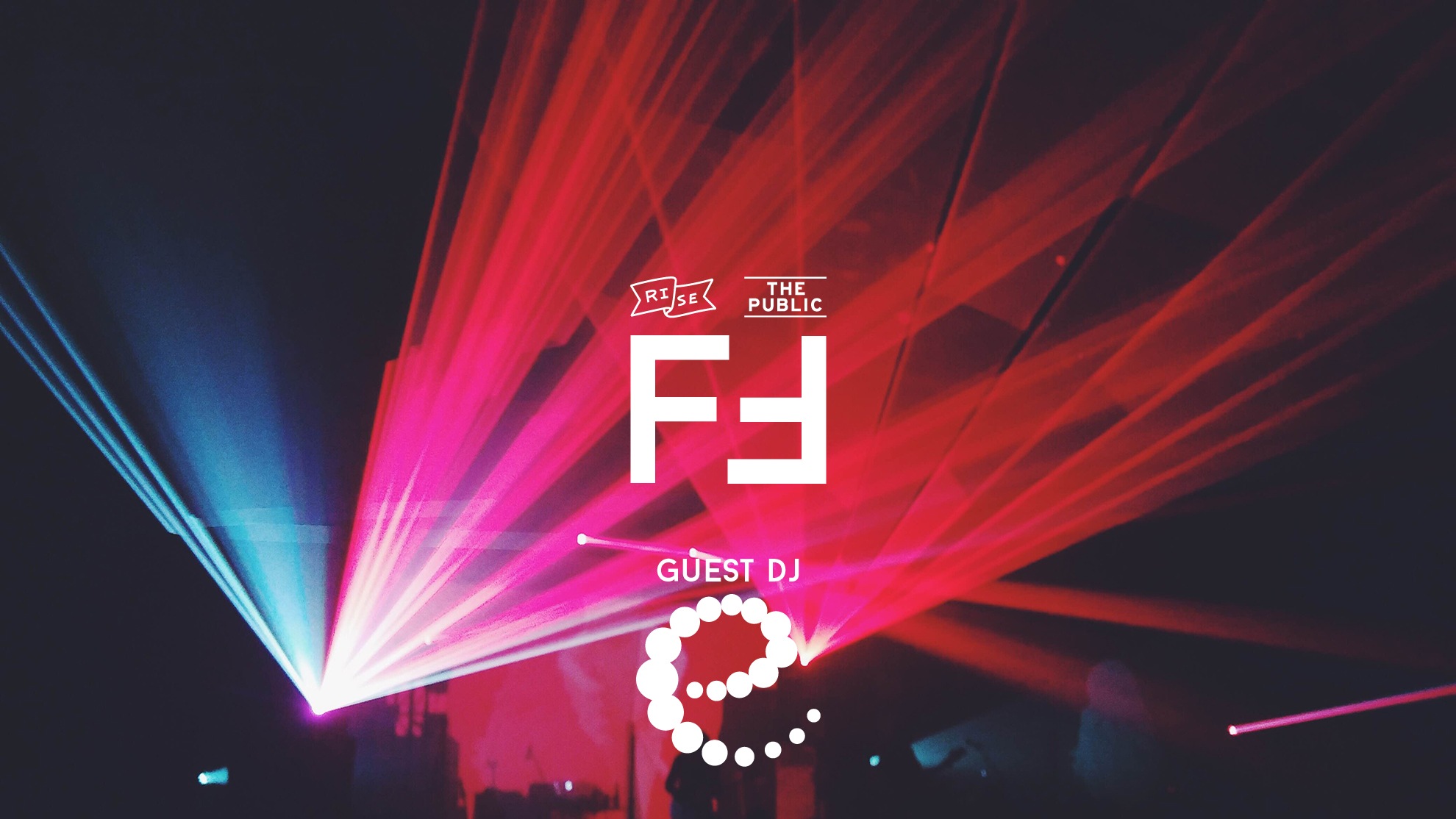Article by Kevin Heffernan
Contributions: Beth Anne Leonard, Kevin Szczepanski
Push Shuffle. Push Play. Relive
Only seeing 200 songs? There’s 553! You might have to open up Spotify app or website to see them all on the @risecollaborative account. Thanks!
In the early 2000’s, emo came, it saw, it conquered, and then it disappeared. Why was it so viral and transformative, and how should we treat it now amidst #MeToo?
Circa 2002/2003:
“I burned you a copy of this CD. The band is called ‘Brand New’. I think it’s exactly what you need to listen to right now,” my friend Tim said. “Make sure you listen to ‘Seventy Times 7,’ it’s killer.”
So is that what you call a getaway?
Tell me what you got away with
Cause I’ve seen more spine in jellyfish
I’ve seen more guts in eleven-year-old kids
Have another drink and drive yourself home
I hope there’s ice on all the roads
And you can think of me when you forget your seat belt
And again when your head goes through the windshield
Is that what you call tact?
You’re as subtle as a brick in the small of my back
So let’s end this call and end this conversation
What – the fuck – did he just say?! Was likely the reaction of many first time listeners, so Brand New repeated it, with exclamation points, before wrapping the song with a powerful “UGH!”
Lyrics like this were just caricatures of the immature thoughts we harbored, and were so outrageous we forgot the person they were supposed to be about.
Something about this new style, dubbed Emo, exploded in the early 2000’s. But why?
– –
Lyrics
They were intense. They were cruel, crushing, desperate, violent, and only sometimes showed weakness by being sad. It’s the kind of shit you might write in a journal or diary in a fit of anger, read the next day and decide to burn the whole thing out of fear or anyone discovering it. These bands said “Hell, let’s put some chords behind that.” It was fresh and new, and not the same sorry garbage from Mix Top 40 we’d been forced to listen to growing up.
Jesse Lacey, frontman of Brand New was at first the bassist for Taking Back Sunday. Until TBS lead singer, John Nolan, hooked up with Jesse’s girlfriend. The incident forced a breakup, the formation of Brand New, and the release of “Seventy Times 7.” TBS’ rebuttal, “There’s No ‘I’ in Team” also came out of Long Island in 2001 and pulled a page from Ice Cube’s precise and lethal attacks on N.W.A a decade prior:
Is this what you call tact?
I swear you’re as subtle as a brick in the small of my back
So let’s end this call,
And end this conversation
There’s nothing worse
(That’s right he said, that’s right he said it)
I swear, you have no idea
The jealousy that became me thinking
(That’s right he said)
That you always had it way too easy
The feud propelled each band forward, with legitimate motivation to outdo the other in sales, attendance, and fans. This beef is still hot TO THIS DAY. What’s waking up in the morning without someone to hate, right?
Fall Out Boy came roaring onto the scene from Chicago with a can of gasoline and a Molotov Cocktail in their first album and first song, “Tell that Mick He Just Made My List of Things to do Today”:
Let’s play this game called “when you catch fire”
I wouldn’t piss to put you out
Stop burning bridges and drive off of them
So I can forget about you.
Reading these lyrics and not knowing the songs, outsiders thought only the most blood-curdling screams and sounds could go along with them. Wrong. These were upbeat songs to dance, mosh, jog, and floor the gas pedal to.
All the World’s Music Was Suddenly Available For Download on the Internet
Hold on Pandora, Spotify, Google, Apple. Napster had just been killed off, but copycats were opening up shop online all over the place.
Kazaa was my personal favorite. I’d set up 5-6 songs to download overnight on my phone line connection, and be pleasantly surprised when they’d have nearly completed 8 hours later in the morning.
In college dorms, iTunes allowed you to see, and listen to, anyone in your building’s entire music collection. It was insane! We would head to buildings all over campus to see what computers would pop up on the network.
Record stores were still in business because if a band was able to make that invaluable emotional connection to you, you still felt obligated to buy the actual CD (and spread the album art and lyrics all over your bedroom walls with thumbtacks). But when word got out you owned the real thing, everyone would rip its tracks onto their computers and burn it onto a blank disk Sharpied, “Summer 2004 Road Trip <3 <3”, destined to be destroyed in a car or backpack.
The Rise of Social Media
Social Media since 2010 has been focused so heavily on Facebook, Twitter and Instagram, mostly because that’s about the time all our parents, and all the ads, got on those apps and ruined them forever.
Before each of those world-changing apps were born, the first place we turned to talk when not physically with our friends was AIM. Forget sending letters, and emails were for writing long diatribes on why we broke up, or why I need you back, or why you, and all your stupid friends SUCK.
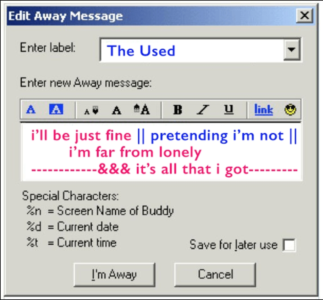
AIM was for poets. Why speak directly to someone when you could post a “you know who you are…” set of lyrics that passive aggressively shredded someone for how them living their own damn life life, somehow hurt your feelings? (Nevermind the lovers who wanted to use all the basic HTML tricks to make hearts and let you know they were happier in their relationship “Tommy 2.14.99 ilu 143” than you would ever be in your entire life.)
I got caught using TBS lyrics “She’ll destroy us all before she’s through” on an away message freshmen year of college and was stunned that the former crush in question directly asked “Is this about me, you asshole?”
“Uhhh. NO. Ugh.” (Run away.)
Beyond AIM was MySpace. We tend to think of MySpace as the simple precursor to Facebook, doomed to fail. But, beyond providing you your very own website to embed music, photos and personally branded colors and fonts (you ALL used comic sans), it was where bands set up shop.
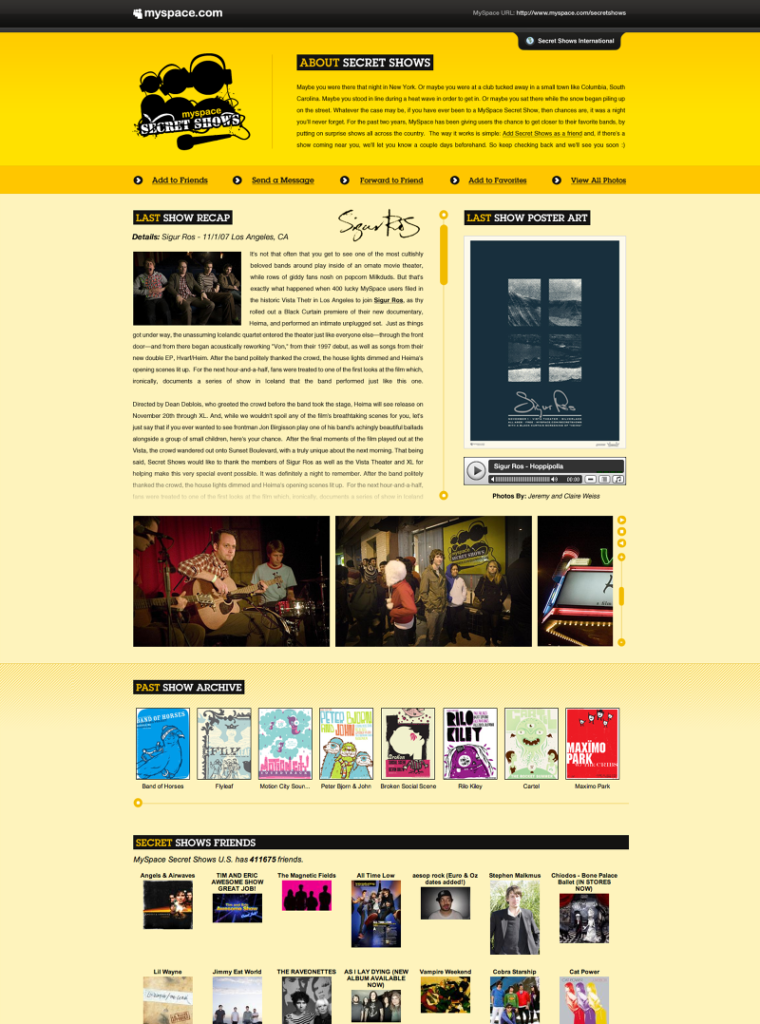
Emo bands brilliantly used MySpace the way a small business uses Instagram to grow without actually spending any money today. Up until this point, you got to know your favorite band if they (we uncool enough) to appear on TRL for a basic interview, or maybe you caught a couple tidbits of information on Matchbox20 while they dominated the airwaves on VH1 Pop Up Video. On MySpace, bands journaled about life on the road in a van, about bassists breaking bones and singers losing their voices, and they showered love on their fans with endless gratitude – building that bond that kept you buying the physical albums first-hand, and more importantly – the god damn T shirts. The rise of the internet unlocked T shirt sales from just the merch available at shows to something you could get shipped in the mail 3-4 weeks after ordering. This unprecedented access to your favorite band and their products led to obsessive fandom, and the removal of the middle man for bands to get their fans’ money.
Early 2000s Suburban American Culture
At this time, dark rock bands like Papa Roach, Puddle of Mudd, Staind and others hit the mainstream in some sort of post 9/11 retaliation to the norm. Emo stayed on the fringe. It never made the radio, and fans went nuts if a song got some airtime on MTV2. This belief that Top40 radio was lame made Emo cool. It made being a fan of it even cooler. In the suburbs of every city around the country, teenagers were all the same. Mostly white, mostly middle class, mostly entitled and terrified of the world they knew nothing about. They searched for the minutia that would allow them to say they didn’t just follow the crowd, and music choice was acutely part of that struggle. Fans were able to belong by not belonging. The juxtaposition of crushing lyrics with upbeat rhythms put fans of Emo on the defense when told their music was all about “Slitting your wrists and crying.” No – We were actually having the time of our lives at Showplace Theater on Grant St Friday Night. (Brand New literally caved part of the roof in during a show there in 2003), and we’re glad you don’t like the music because we didn’t want you at the show!
By declaring themselves vehemently not part of one group, Top 40 fans, Emo fans were actually joining another alternative group, where they felt a sense of belonging, and there was still room for everyone:
Anberlin let Christians subliminally get down with face melting chords.
Fans of graphic novels actually followed along with the long-form stories from Coheed and Cambria epic albums.
Jimmy Eat World offered more mature heartbreak mixed with existentialism.
Panic! At The Disco let your music get played in the bars you snuck into underage because it was built for dancing.
Something Corporate broke the mold and replaced fits of anger in songs with putting the women they were singing about on the highest pedestal when “I Want to Save You” kicked off their most popular album, Leaving Through The Window. (And let’s just let Konstantine” stand alone by itself and you can remember your own feels).
“Yellowcard had a violin!
All-American Rejects was quietly made fun of because too many main-streamers liked it for being so simple and… kind.
Soon Enough, All our heroes die or burn
Brand New stayed relevant and evolved. It moved away from breakups and betrayal and introduced philosophy into its albums. But while the band and its music changed, Jesse Lacey did not.
He came out with a statement in late 2017 where he apologized for years of terrible acts, and subsequently canceled a string of shows. Cheating on his girlfriends, his wife, while on the road, and coercing his female fans of all ages, to send nude photos and videos or meet up. I’d seen the lyrics evolve over the years. I knew the guy was troubled. But in light of the #MeToo movement I couldn’t help but wonder if we were all terrible people for singing along, and what to make of listening to the music again today. Music blogger Sophie Benjamin tore them and the entire Emo genre a new asshole shortly after. She declares Lacey is now receiving the crucifixion he always wanted. Click that link and think about what she had to say.
Some listeners may have been conditioned by all these lyrics to stop blaming themselves for things. Instead, project blame for failed relationships or failed friendships onto others. Nothing was our fault. It was always someone else’s.
While that change of perspective could provide a confidence boost when many teenagers needed it the most, it created dangerous habits and expectations while we experimented with dating. We dangerously declared, if a relationship didn’t work out, it’s not because we’re not a good match, or because I’m not a good catch, it’s because you’re flawed, or you’re malicious, and I don’t need to change/improve anything about myself.
The genre was incredibly dominated by men. When compiling this playlist, I had to seek out help in finding bands that fit the Emo genre that were female-led or all-female bands. The pickings were slim. Were the lyrics sexist as a result? When not writing songs about their friends, the lyrics often slammed women.
But before we throw it all out the window, consider that there was no shortage of women at all of those shows, singing along at full volume with fists in the air. My friend Beth Anne helped me piece together this article and playlist because she had the same amount of passion and connection to each song and verse, and she doesn’t look back on it all as damning to women at all, but that the objects of the rage could just as easily be transitioned to men.
John Lennon was a physically abusive husband and father. Should he, his music, and his movement be erased from history? Or should we make a better effort to accompany any praise with strong criticism? The songs we loved were creative, powerful and fun but sometimes went too far, or were written by terrible people. Can we take the good with the bad? Or should we shut down every opportunity to listen by avoiding Brand New and others on Spotify, Google and Apple? Throw their CD’s into the fire?
Is it even possible to 100% abandon the work of everyone that is unjust? Your laptop and your cell phone are made of metals that African children die mining every day, so is anyone really capable?
Whether the bands all should be denounced, or criticized, or left to produce their latest teen bop hit for VH1 and Kiss98.5 (Fall Out Boy… what happened to you guys?), or we just let them fade into darkness, we can safely declare the early 2000’s was an explosive time for subculture that gave the other kids a place to hang out.

